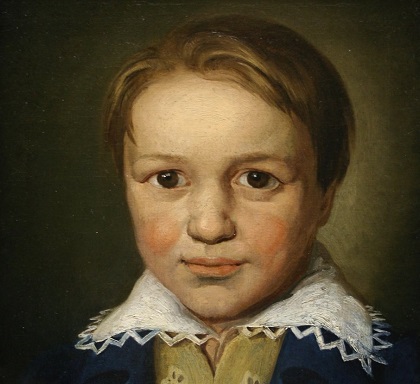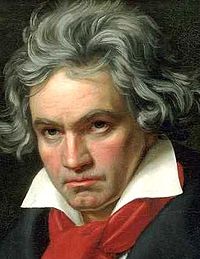
When, despite his father’s brutal teaching methods, Ludwig began to show signs of promise, other teachers were called in. By the age of seven he was advanced enough to appear in public.
In 1787, Beethoven went to Vienna, a noted musical center, where then Count Waldstein engaged Beethoven was piano teacher and became his friend and patron. It was there that Beethoven met the great Mozart, who received the boy doubtfully, but once Beethoven started playing the piano his talent was evident. “Watch this lad,” Mozart reported. “Some day he will force the world to talk about him.”
The first concert of his own responsibility occurred on April 2, 1800 he launched his first Symphony and introduced his world famous Septet op. 20. One year later, however, in 1801 his deafness began to hit Beethoven, causing great turmoil in his life. Beethoven’s career as a virtuoso pianist was brought to an end when he began to experience his first symptoms of deafness. By nature, Beethoven was impatient, impulsive, unreasonable and intolerant; deafness added suspicion and paranoia to these attributes. He may have had short periods of remission, but for the last ten years of his life he was totally deaf.
Beethoven died in 1827, totally deaf, brought down by pneumonia and then liver cirrhosis and edema. Beethoven’s final moments, if a report by Schubert’s friend Huttenbrenner are to believed, were dramatic in the extreme. At about 5:45 in the afternoon of 26 March, 1827, as a storm raged, Beethoven’s room was suddenly filled with light and shaken with thunder:
Beethoven’s eyes opened and he lifted his right fist for several seconds, a serious, threatening expression on his face. When his had fell back, he half closed his eyes
… Not another word, not another heartbeat.
Beethoven was a grateful successor of the German Romantic school enriched by such geniuses as Schiller, Goethe, Schubert, Hoffmann. One of the greatest evidences of his Romantic heritage is Symphony 9 which he put on the Schiller’s Ode to Joy. For centuries its listeners feel something breathtaking and magnificent in this music despite some music scholars still disputing its breaches in classic composition.
Related articles:
The German Influence on Classical Music
Johannes Brahms
Richard Wagner
Johann Sebastian Bach

